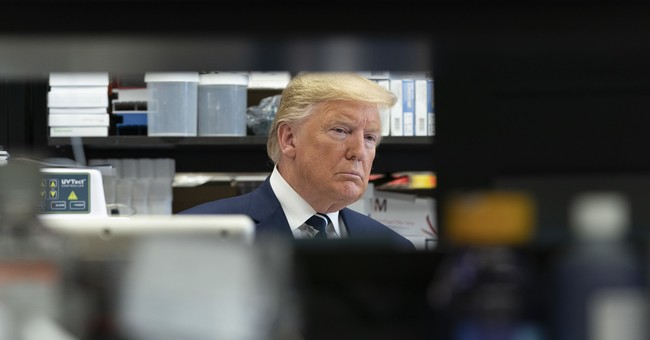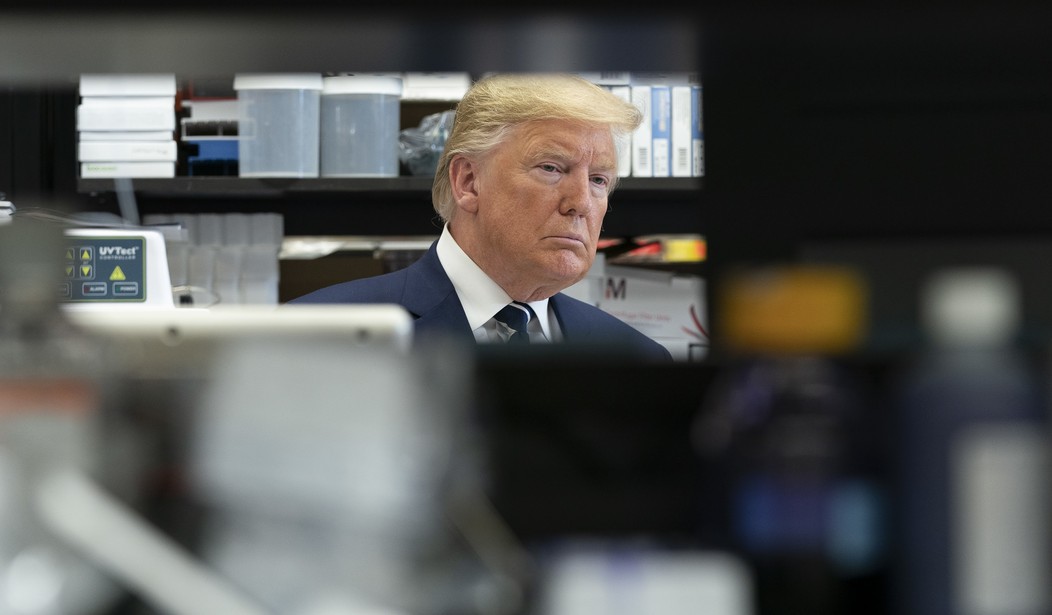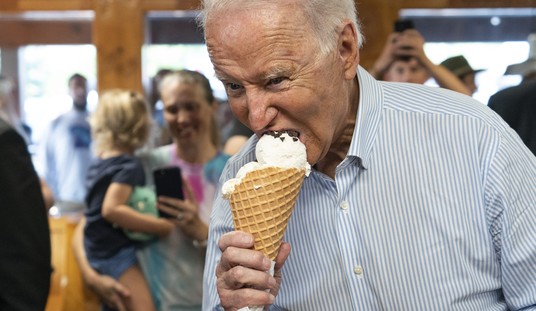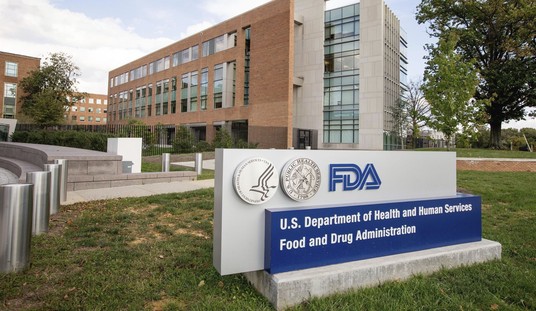
I’m not a scientist but you don’t have to be a scientist to know its basic principles. You have a hypothesis and you test it through various means. It can be proven wrong or right through the test process. However, no matter what, the scientific process always begins with the asking of a question.
Asking questions is always step one for receiving further knowledge through science. Even if you arrive at a discovery for something completely unrelated to the hypothesis you were testing, you only got there by mistake because you first asked a question. It could have been a question of complete curiosity, or it could have been questioning what we currently know about any given subject. Either way, a query is where it all begins.
Of all the self-righteous people out there, few are more self-righteous than the “I believe in science” denizens of the internet. You’ll know them by the way they don’t just argue any point you made with their own knowledge, they make sure to tell you how much of an idiot you are for not being as up on science as you are. You can often find them telling Christians how stupid they are for believing in a “sky daddy,” and should you express any doubt surrounding the mainstream theories around climate change, they’ll proceed to dogpile you with angry insults and mockery with cult-like fervor.
They have an unhealthy need to defend Bill Nye as a “scientist.”
Why do they look down on you? Because on any given subject you wish to express doubt on, debate or ask inconvenient questions about, the science is settled. You’re wrong and they’re right. The scientific community said so and they’re with the scientists. They have slain you in the name of science. Science be praised.
This always struck me as a very stupid way to look at things scientifically.
It was my impression that ideas, questions, and doubt were a huge part of science. The very foundations of scientific thought begin with a lack of knowledge, not an abundance of it. If we had all the answers, science wouldn’t be necessary. We’d be instantly teleporting from one end of the galaxy to the other with no end to our resources and all diseases would be a nightmarish part of our history that we never have to worry about again.
But that’s not the world we live in. I’m still waiting on my hoverboard, much less a warp drive. Also, diseases are still very much on the table and we don’t know how to cure the vast majority of them. Rest assured, we will find a way, but it first starts with asking how and finding out what works and what doesn’t.
So when President Donald Trump asked…
“So supposing we hit the body with a tremendous — whether it’s ultraviolet or just a very powerful light — and I think you said that hasn’t been checked because of the testing,” Trump said. “And then I said, supposing you brought the light inside the body, which you can do either through the skin or some other way, and I think you said you’re going to test that, too.”
“I see the disinfectant that knocks it out in a minute, one minute. And is there a way we can do something like that by injection inside or almost a cleaning? As you see, it gets in the lungs, it does a tremendous number on the lungs, so it would be interesting to check that.”
After hearing presentation President Trump suggests irradiating people's bodies with UV light or injecting them with bleach or alcohol to deal with COVID19. pic.twitter.com/cohkLyyl9G
— Josh Marshall (@joshtpm) April 23, 2020
…Trump is simply asking if these things are possible. Does he want you to be injected with Lysol? No. Of course not. It’s poison and he knows that. The question is asked was “is there a way we can do something like that by injection inside or almost a cleaning?”
The key part of that phrase was “is there a way?”
If we were to really break down the question in a way that a scientist might look at it, we would get something like this: “Is there a way we could get the various active ingredients that kill the virus safely into the body, causing maximum harm to the virus with minimal harm to the host?”
It’s a question worth asking, and as it turns out, scientists have been looking into it for years already, at least in terms of the UV light. As I mentioned in a previous article debunking the claim that Trump was pushing people to inject bleach into their veins…
I noted that UV therapy has already been a thing for some time and was abandoned around the 1950s in favor of antibiotics. The practice is called “ultraviolet blood irradiation” and has earned itself the nickname “the cure that time forgot.” Apparently, it’s not all that forgotten about and scientists have been working to develop similar technology to utilize UV light as a way to combat viruses and bacteria as UV light has been shown to hinder or even kill various types.
A recent article at NASDAQ.com showed that one research team has been developing this tech since 2016 and has been working with Aytu Bioscience Inc. and the FDA to have it approved for widespread use:
Led by Mark Pimentel, MD, the research team of the Medically Associated Science and Technology (MAST) Program at Cedars-Sinai has been developing the patent-pending Healight platform since 2016 and has produced a growing body of scientific evidence demonstrating pre-clinical safety and effectiveness of the technology as an antiviral and antibacterial treatment. The Healight technology employs proprietary methods of administering intermittent ultraviolet (UV) A light via a novel endotracheal medical device. Pre-clinical findings indicate the technology’s significant impact on eradicating a wide range of viruses and bacteria, inclusive of coronavirus. The data have been the basis of discussions with the FDA for a near-term path to enable human use for the potential treatment of coronavirus in intubated patients in the intensive care unit (ICU). Beyond the initial pursuit of a coronavirus ICU indication, additional data suggest broader clinical applications for the technology across a range of viral and bacterial pathogens. This includes bacteria implicated in ventilator associated pneumonia (VAP).
There’s evidence to suggest that UV light could be used against COVID-19, so I guess Trump’s question wasn’t bats**t crazy after all. Even if the treatment isn’t as effective as we’d all hope, at least we tried and were able to safely rule it out.
I tell you this because I want to show you the reaction to my bringing up the idea of UV irradiation therapy, and it involves a lot of quacking, which I guess is appropriate for these titans of “scientific” thought.
Irony, anyone? He referenced UV blood irradiation to defend @realDonaldTrump's comments about "getting light inside" to kill #SARSCoV2 and treat #COVID19, apparently blissfully unaware that this is a quack treatment that has *never* been convincingly shown to treat anything.😂🤦🏻♂️ https://t.co/3k4W27H4UM
— David Gorski, MD, PhD (@gorskon) April 24, 2020
https://twitter.com/AlastairMcA30/status/1253697100686061572?s=20
Referencing a quack treatment to defend Trump's 25th Amendment moment yesterday is… actually all you can do at this point to defend your putrid Orange Jesus.
Thoughts and prayers.
— B (@AnonKmed) April 24, 2020
Seriously, you had the opportunity to just ignore this whole issue to go through life saying ‘yeah I didn’t hear that comment’ but you still chose to try and defend the indefensible. Why would you do that
— Julia Offord Pearman (@JuliaPearman) April 24, 2020
Another article written by someone with shit in their pants. Glorious.
— R̲E̲A̲R̲ A̲D̲M̲I̲R̲A̲L̲ 𝕍𝔼ℕ𝕆𝕄 of 𝓐𝓷𝓽𝓲𝓯𝓪 (@PunishedHoliday) April 24, 2020
I love it that referencing a disproven quack medical practice is literally the best defence Republicans can come up with. Beautiful. This could cost Trump the election.
— 🌹Cosplay Vigilante🌹 (@EHAP_Mexico) April 24, 2020
Slamming me over telling people not to believe blue-checks when I myself have one is fair, but the difference between me and many others is that I actually admit to having a bias and openly encourage people to go and get as much information as they can from other sources. Most blue-checks would rather you be pretty careful in your reading and when you believe in “science” as much as these people above do, you can never be too careful in your reading.
They apparently are. They knew that irradiation therapy was a quack science just like scientists of old knew that the world was flat, yet here is the scientific community looking at ways to utilize it to fight viruses after having seen that sunlight is, after all, a pretty stellar disinfectant. It’s not that much of a leap to wonder if we can move it from the outside to the inside and utilize it to affect the virus.
All things considered, these people who were self-righteously telling me, a supposed idiot, that the science was settled were not only not really in line with the principles of science, they weren’t even up on the latest information about it. The people who were supposedly our intellectual superiors and wanted to shame people for wondering along with Trump if these things were possible, as it turns out, didn’t know what they were talking about.
So don’t worry about them. Ask questions. Read up. What we know changes every day because we’re always asking questions and science is always being used to answer them.
…and don’t always completely trust the blue-checks. Even me.













Join the conversation as a VIP Member